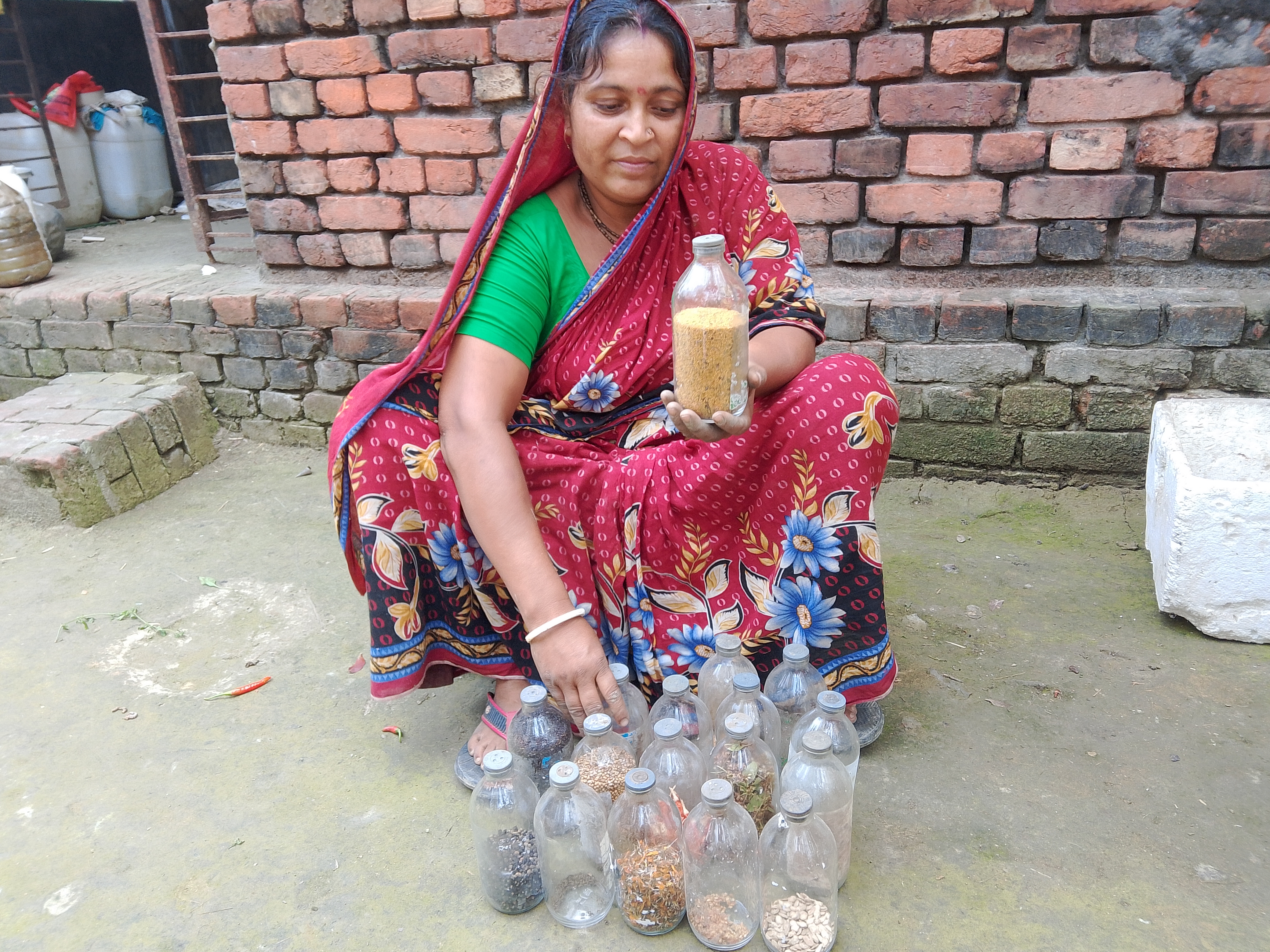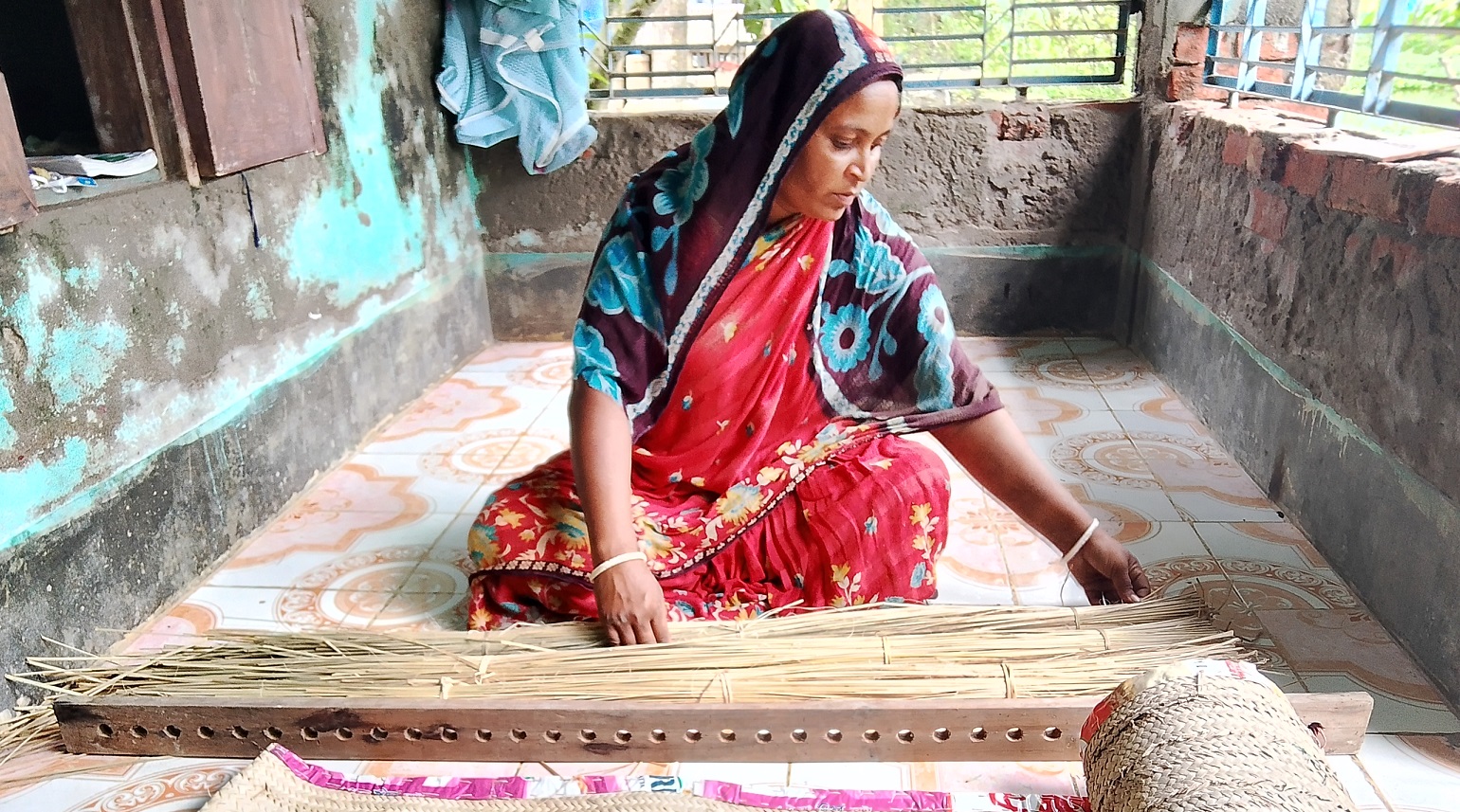By Monika Paik Shyamnagar, Satkhira
Nilima Rani Mondol (38), a member of Shotobari group at Abad Chandipur village of Burigoalini Union under Shyamnagar upazila, has been making remarkable contributions to reducing plastic use by promoting eco-friendly products. She lives with her husband, son, and daughter.
Since the age of 15, Nilima has been involved in agriculture alongside handicrafts, particularly making mats and handwoven products. She inherited this skill from her father. Even after her marriage, she continued both vegetable farming and handicraft production.

Since joining BARCIK’s activities in 2024, Nilima has diversified her homestead farming with her husband’s support. She cultivates a wide range of seasonal vegetables including potatoes, tomatoes, eggplants, pumpkins, beans, spinach, cauliflower, cabbage, radish, gourds, cucumbers, chili, onions, garlic, turmeric, and paddy in the aman season. This diversity meets her family’s nutrition needs and reduces market dependency. She has even set up a small seed bank at home to conserve native varieties of seeds.
Nilima’s turning point came after attending BARCIK’s discussions and trainings, where she learned about the harmful impacts of plastic. Being motivated, she gradually replaced household plastic items with eco-friendly alternatives like date palm leaves, reeds, and jute. She now makes sitting mats from palm leaves, handwoven floor mats from reeds, and decorative designs on jute sacks. Initially used for family needs, she began selling the products locally, which now help her covering her children’s education expenses.

Her initiative has inspired other village women to engage in handicraft work, earning extra income and reducing household dependency on the market. Nilima believes such practices are not only economically empowering but also help to preserve traditional heritage.
Nilima said, “Plastic-made mats may be available in the market today, but village women like us are still holding on to our traditional crafts and keeping these eco-friendly products alive for family and cultural use.”
